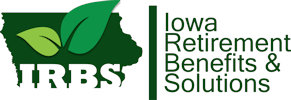What Is IRMAA and How Can You Avoid It in Retirement?
What Is IRMAA and How Can You Avoid It in Retirement?
Posted by Ethan Ball, CRPC
Serving Cedar Rapids, Iowa, and Surrounding Areas.
What Is IRMAA and How Can You Avoid It in Retirement?
If you’ve ever been surprised by higher Medicare premiums, IRMAA might be the culprit. The Income-Related Monthly Adjustment Amount is a surcharge applied to higher-income Medicare beneficiaries—and it’s based on your income from two years ago. One extra dollar of income can cost you hundreds, even thousands more in annual premiums. Let’s break down how IRMAA works, who pays it, and what smart retirees can do to reduce or avoid it altogether.
What Is IRMAA?
IRMAA stands for Income-Related Monthly Adjustment Amount. It’s an additional premium added to your Medicare Part B and Part D if your income exceeds certain thresholds. While the standard Medicare beneficiary pays about 25% of their Part B premium, higher earners pay between 35% and 85%.
In 2025, this surcharge can add:
-
Up to $443.90/month for Part B
-
Up to $85.80/month for Part D
That’s over $6,300/year in extra costs.
How Is IRMAA Calculated?
The Social Security Administration (SSA) uses your Modified Adjusted Gross Income (MAGI) from two years ago to determine if you owe IRMAA. For example:
-
Your 2024 income determines your 2026 Medicare premiums.
MAGI includes:
-
AGI (line 11 on 1040)
-
Tax-exempt interest (line 2a)
-
Distributions from traditional IRAs and 401(k)s
-
Capital gains, dividends, and rental income
But does NOT include:
-
Roth IRA withdrawals
-
HSA distributions
-
Life insurance proceeds
-
Qualified Longevity Annuity Contract (QLAC) exclusions
Who Pays IRMAA?
Anyone on Medicare with income above the SSA thresholds:
-
$103,000+ for individuals
-
$206,000+ for married couples (2025 figures)
And heads up—once a spouse passes away, the survivor often faces higher IRMAA tiers as a single filer, even if their income doesn’t change.
How Do You Pay IRMAA?
-
Part B IRMAA is deducted from your Social Security benefit (or billed directly).
-
Part D IRMAA is billed directly to you—even if your plan is paid by an employer or retirement system.
You’ll get a notice from SSA (called the Initial Determination Notice) if you owe IRMAA.
How to Appeal IRMAA
If you’ve had a life-changing event—such as retirement, divorce, death of a spouse, or income reduction—you can appeal using Form SSA-44. This could lower or eliminate your surcharge.
Can You Avoid IRMAA? Yes—With Planning.
IRMAA is avoidable or at least reducible with smart income planning. Here’s how:
1. Roth Conversions
Convert traditional IRAs to Roth IRA before you enroll in Medicare. Spreading conversions over several years before retirement keeps your taxable income lower when IRMAA starts counting.
2. Strategic Withdrawals
Pull income from Roth IRAs, HSAs, or life insurance cash values instead of traditional retirement accounts.
3. Timing Matters
Be mindful of income spikes from:
-
Capital gains
-
Business sales
-
Real estate sales
Even a $1 increase in MAGI could bump you into a higher IRMAA tier and cost hundreds more annually.
Final Thoughts
IRMAA isn’t a tax—it’s a premium surcharge. But for high-income retirees, it feels like one. Fortunately, with the right planning and guidance, you can minimize how much of your retirement income gets gobbled up by Medicare.
Need help building an IRMAA-smart income strategy?
Schedule Your Free Financial Strategy Session
Email us at info@iowaretirementsolutions.com
Call us at 319-423-3332
Click here to schedule your free consultation.
Investment advisory services are offered through Fusion Capital Management, an SEC registered investment advisor. The firm only transacts business in states where it is properly registered or is excluded or exempted from registration requirements. SEC registration is not an endorsement of the firm by the commission and does not mean that the advisor has attained a specific level of skill or ability. All investment strategies have the potential for profit or loss.




